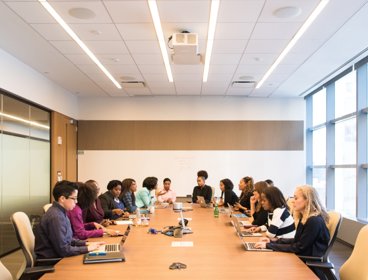By John H. McKendrick, Glasgow Caledonian University
There are many ways in which the knowledge and skills of the geographer can be utilised to tackle poverty, and to support those who tackle poverty.
Geographers should practice what they preach – we should be as concerned to tackle the problems in the Academy (including in the discipline) as tackling the problems that persist in wide society.
Poverty is no stranger to geographers. At a fundamental level, poverty influences who has access to geography and how geography is experienced, both in schools and in higher education. Beyond the Academy, poverty manifests itself in many ways, and specialists from a broad range of sub-disciplines have ruminated on how it shapes their geographies, including transport, food, economy, gender and so on.
And of course, poverty is placed. At every geographical scale, concentrations of poverty are to be found, and how life is experienced is shaped by poverty. There is a global geography: ‘No poverty’ is the first of the seventeen Sustainable Development Goals, acknowledging that far too many citizens in far too many countries have lives afflicted and constricted by poverty. It has a local geography: although poverty often endures in localities, the geographies of poverty have also been found to be dynamic.
Although it would be easy to despair at the problem of poverty, given the enormity and complexity of the task of tackling it, and its apparent resistance to anti-poverty interventions, geographers are not only involved in better understanding poverty, but are actively involved in work to tackle it. In my own practice, I have given equal weight to the pursuit of academic and applied geographies of poverty.
From the outset of my career, I have been interested in challenging social injustices (poverty included) and challenging the misperceptions that abound in relation to them. A move back to Scotland in 2002 coincided with the formative years of a Scottish Government, which created new possibilities for working with government (local and national), other public bodies and Third Sector/community groups. From the outset, there was a mission to promote social inclusion and tackle poverty, which provided opportunities to apply geographical research skills to appraise public policy. Equally important, was working in an institution that valued community connection and at least did not discourage staff from forging connections with community groups and facilitating opportunities for students to apply their skills and knowledge to support this.
Over the last twenty years, I have found many ways to apply my geographical skills and knowledge to support others in efforts to tackle poverty in Scotland. In no particular order, here is a list of the top ten practices in my applied geographical work:
1. Applied research. The bread and butter of applied geography is the application of our geographical research skills. In addition to delivering research for the Poverty and Inequality Commission and the Scottish Government, much of my effort has been directed to undertaking research to inform the work of community groups.
2. Contribute to wider debates - Social mobility and Sustainable Development Goals. Although with a national commitment to eradicate child poverty in Scotland by 2030 opportunities abound to apply geography locally, I have also contributed to wider work to appraise policy interventions in the UK and beyond.
3. Keynote presentations. I have delivered over 50 keynote addresses and been invited to deliver over 150 presentations at seminars and workshops focused on poverty. Among those delivered in 2023 are presentations to the Dundee Fairness Commission, School Leaders Scotland, Glasgow Community Planning Partnership, British Nutrition Foundation, Scottish Trades Union Congress, Renfrewshire Nurture Conference, and the Tenant Participation Advisory Service.
4. Columnist in the Scottish Anti-Poverty Review. I write a research column for SAPR, the magazine of The Poverty Alliance, Scotland’s alliance of organisations committed to tackling poverty.
5. Committee Work. I serve on a range of national and local committees, including the Scottish Pantry Network, the Child Poverty Programme Board (of the Scottish Government), the Vulnerable Consumers Group (of Consumer Scotland), Feeding Britain (Academic Panel) and the Perth and Kinross Poverty Action Group.
6. Local Poverty Directory. With the support of the Abrdn Financial Fairness Trust, SPIRU is just about to launch a Directory of Local Practice, to raise awareness of work being undertaken across Scotland (and beyond) to tackle poverty locally.
7. SPIRU Work Placement. I afford opportunities for my students to undertake applied research. Students can elect to join SPIRU for a Work Placement module, a key element of which has been to undertake community research. In recent years, we have reported on Home Economics teachers experience during the cost of living crisis, a nationwide survey of secondary school pupils canvassing their opinions on school meals, the introduction of a breakfast cart to tackle food poverty in schools, and plans to introduce a community supermarket in a deprived neighbourhood in Glasgow.
8. Poverty-proofing the University. SPIRU is developing a project to ‘poverty-proof’ the university, reviewing ways in which everyday practice could be altered to improve the experience of HE for students from financially disadvantaged backgrounds.
9. Alliance of Working Class Academics. I am a committee member of the Alliance, an organisation concerned to support faculty and students from working class backgrounds in academia.
10. Commissioner for Fair Access. In January 2023, I was appointed Commissioner to advise HEIs in Scotland and the Scottish Government on what should be done to ensure that by 2030, 20% of Scottish-domiciled students entering higher education in Scotland are from Scotland’s 20% Most Deprived Areas.
How to cite
McKendrick, J. H. (2023) The riches of an applied geography of poverty. Communicating research beyond the academy. Royal Geographical Society (with IBG) Guide. Available at: https://doi.org/10.55203/ENJA4313
About this guide
There’s long tradition of geographers communicating research ‘beyond the academy’ - to policy, to publics, to young people, to school teachers - whether to recruit students, for career development, critical praxis and activism, or requirements of funders to document ‘impact’. Ten years ago we published the Communicating Geographical Research Beyond the Academy guide. It sought to bring together and share collective experience and learning, from within and beyond the academy. Today, there are ever more opportunities and modes and media with which to do this. While many of the points made – about audience, about access, about brevity and the use of plain English – still stand, this collection covers these already familiar issues as well as bringing new perspectives to encourage readers to reflect on motives, means and methods and to illuminate examples of good practice.




